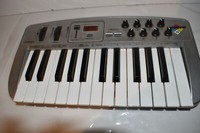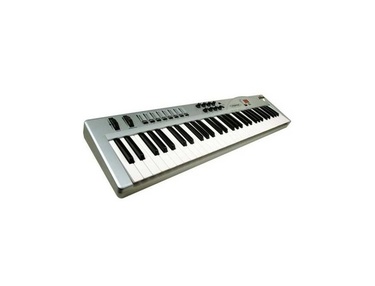


– Transpose buttons to change octaves (up or down). – Input for the m-audio sustain pedal (sold seperately). – Volume Control Slider (can also be assigned to other features in your DAW) – 61 or 88-note keys that are both velocity-sensitive and semi-weighted. If you need more extensive control such as sliders/faders for automation and control in your DAW, I’d recommend looking at a more expensive controller like the M-Audio Axiom 61. If you are looking for a low cost midi controller that has all the necessary functions the M-Audio Keystation is for you. Mine’s surprisingly still in perfect shape, but I could see it getting broken easily.
Midiman oxygen 8 behringer model d mod#
A midi controller with only the essential functions: transpose, pitch bend, mod wheel, volume, keys. Overall : 4.5 / 5 – The M-Audio Keystation’s are exactly what I expected for the price. The keystation also comes in the smaller size of 61 keys but is exactly identical besides the key count. This is why I decided to go with the M-Audio Keystation 88es when I wanted the additional 17 keys. There are plenty of midi controllers out there, some built better than others, but I’ve had good luck with M-Audio so I’ve stuck with them. In the 8 or so years that I’ve had my axiom 61, I’ve never ran into a problem with it. I’ve always rocked M-Audio midi controllers, my first being the M-Audio Axiom 61. The M-Audio Keystation comes in both 61 and 88 keys, and connects via USB.

M-Audio Keystation 61es / 88es Review M-Audio Keystation 61es / 88es Keyboard Midi Controllers at an Affordable Price


 0 kommentar(er)
0 kommentar(er)
